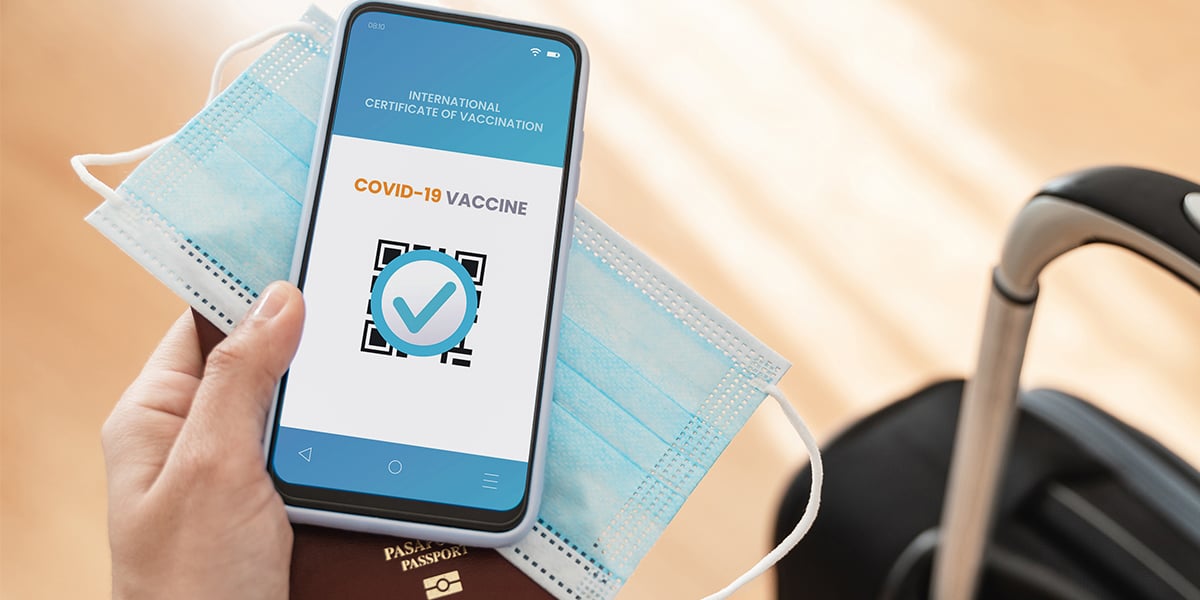The Emergence of Blockchain-Based Health Passports
As the rollout of both Moderna’s and Pfizer’s COVID-19 vaccines continues and cases of the virus have begun to decrease, there is finally some optimism that the end of the pandemic may be in our sights. When that happens, however, there will still be issues swirling around who is immune from the coronavirus and who is not: this will be especially important for people traveling abroad (which is thought to be one of the primary causes of the virus’ rapid worldwide spread in the first place). One of the ways this will likely be done is through what has come to be known as a “COVID passport.” In this post, we will explore how blockchain will power the success of such a program.
Since it’s become a focal point of our lives, we won’t spend too much time explaining the concept behind the “COVID passport.” Suffice it to say, the so-called passport would be some kind of documentation that a person carries as certification that they have received all the required vaccinations to prove their immunity to the COVID-19 virus. However, we’ll spend the majority of this article investigating how blockchain may back-up the system.
Central to the development of the blockchain-powered digital health passport platform has been IBM. The tech giants have been focused on developing their platform to allow individuals to store and share their health status while ensuring privacy. Christened the “IBM Digital Health Pass,” the system will combine various dynamic data sources, which include test results, on-site temperature scans, and vaccination status to allow people to safely store and access their health information from their smartphones.
IBM highlights four areas of focus to successfully navigate the solution. These include the ability for organizations to have the freedom to design business rules, determine their response to the health status, allow individuals to share their health status, and control access to their data. For example, the digital health pass is also designed so that organizations are able to create their own criteria to generate a health status that fits any situation.
 Blockchain-backed health passports may be central to travel in the not-too-distant future.
Blockchain-backed health passports may be central to travel in the not-too-distant future.
But why blockchain? How is this technology specifically advantageous for this endeavor? Well, like many of blockchain’s other potential applications, it comes down four principles:
- People own and control their own passports: employees and travelers will be able to access their information at work, a restaurant, an airport, or anywhere else it may be needed.
- Easily verified: a blockchain health passport will use cryptography and artificial intelligence to allow verification.
- Tamper-proof: as with other blockchain use cases, this application will be virtually impossible to falsify without catching the attention of third-parties. So, any potential bad actors will find compromising the system on either a small- or large-scale exceptionally difficult.
- Secure and Private: in tandem with the above points, the health information will only be available to people and anyone they choose to share it with.
As of October 2020, IBM has been conducting trials between United Airlines and Cathay Pacific Airways. The trials are seeking to mimic the full traveler experience of taking a COVID test before departing, uploading results, and following entry and exit requirements at departure and destination locations. Upon completion of the trials, the expectation is further expansion among airlines and routes around the world.